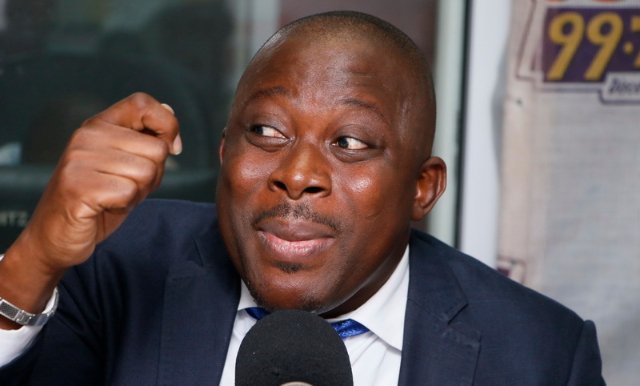
A former Head of Communications for the Ministry of Petroleum, Edward Bawa, has said the Philip Addison led committee that probed the AMERI power plant deal churned out a lopsided report.
Speaking on Anopa Kasapa on Kasapa 102.5 FM, Bawa said “Let me put it on record that the committee never spoke to any former appointee in the Ministry of Energy on the issue which means that it is a lopsided report, because if you’re setting up such a committee, it is only fair that you call the other party to give their side of the story then you incorporate all that to furnish your final report. But that never happened.”
A committee constituted by the Energy Minister to review the AMERI deal signed by the former government, revealed in a report that the contract was overpriced by about $150 million.
It has indicated that the contractor, PPR, actually built and financed the plant at a cost of $360 million, yet AMERI, which secured the deal, forwarded a bill of $510 million in the agreement.
“The Committee recommends that Ameri Energy should be invited back to the negotiation table to address and remedy the issues enumerated in this report and for GoG to aim to claw back a substantial portion of the over $150 million commission. In the event that Ameri Energy refuses to come to the negotiation table, GoG should repudiate the Agreement on the grounds of fraud,” the report said.
But Mr Bawa contested the position of the committee insisting that the AMERI deal was a profound investment decision taken by the team at the time in the interest of the state.
“What we were involved in was the best deal Ghana could have gotten at the time. The fact that they did not sight a due diligence report doesn’t mean we didn’t do due diligence.” he said.
Comparative investment Analysis
“We had three options to this agreement; the first was to purchase it with an amount in the range of 473 million dollars, and the second option was to rent it for a figure around 477 million dollars, and the third option was what we settled on which is the BOOT costing us 510 million dollars.”
“Because of some competing needs of the state we couldn’t buy the Plant outright for that 473 million dollars, while the second option was also not helpful because after a period of renting, the plant will be taken back by the partners. So then among the three options, the third one which is the BOOT was quiet a good deal that is why we sent to parliament for approval.
“If you want to look at the issue critically you need to compare the AMERI to other existing plants that we have. If you look at the average composite generation tariff which the PURC has approved for the other 7 thermal Plants, the average cost is about 14.94 US cents per Kilowatt hour [kWh], but AMERI will cost 14.59 US cents kWh. So AMERI is better in terms of cost. The other 7 Plants also have a contract period of about 20 years, but then again AMERI has only 5 years. So when you compare them AMERI is far better.
150 million dollar Bloated Commission
“AMERI was not a charitable organization. It came based on an investment decision. Lets even assume that the commission was just going to take care of the cost of financing. Assuming that for five years it was 10% rate of a term, over five years it will be roughly in the neigbourhood of about 180 milllion dollars. So it means that the current 150 million dollars, the interest is less than 10% per annum. Granted that it is less than 10% per annum, then in terms of a comparism computation of the three year bond that was issued by the Ministry of Finance – the two year bond has an interest rate of 21.5%, so it means that for five years the Government of Ghana would have been paying 100% of the amount they are going to realize through the bonds. So even in terms of the cost of financing introduced by the NPP government, its about 21.5, this is less than 10%. So if you want to argue that its over bloated, on the basis that the contract should be renegotiated to be able to claw back a part of the 150 million dollars, if you detect fraud, do you need to renegotiate with people? Don’t you go to court to make the laws of the country deal with it?


